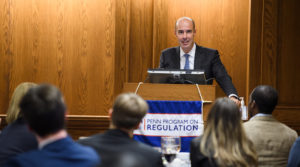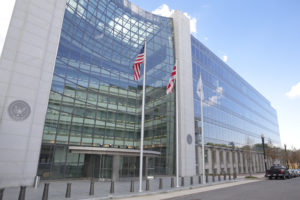The Public’s Role in Administrative Law
Public participation in the rulemaking process serves a vital role in improving the law.
President Trump’s Regulatory Agenda
PPR panel discussion analyzes the Trump Administration’s regulatory goals and its likelihood of achieving them.
Should We Run Agencies More Like Businesses?
Legal scholar argues for greater reliance on entrepreneurial strategies in regulation.
How Global Anti-Corruption Enforcement Grew
Scholars argue changing global attitudes and U.S. legal culture have impacted white-collar prosecutions.
The Case for Regulating After Harms Occur
Scholar argues that society is best off when regulators punish violations after the fact.
The Regulatory Accountability Act and the Obsolescence of Formal Rulemaking
Administrative agencies should not be required to use a process that has been obsolete for decades.
The Case for Regulating Before Harms Occur
Scholar argues that regulators should try to impose penalties before rule violations can hurt society.
Why Cabinet Secretaries Should Not Threaten Members of Congress
Basic principles of American government limit the political role of administrative agencies in legislative debates.
Structural Reforms to Improve Cost-Benefit Analyses of Financial Regulation
Independent agencies should mirror executive branch practices to overcome judicial scrutiny.
Constraining the SEC’s Enforcement Options
Supreme Court limits agency’s ability to demand repayment of illegal gains.
Equal Footing as Equal Protection
Supreme Court holds that states cannot adopt rules disfavoring arbitration agreements.
The First Amendment Protects Offensive Trademarks
Supreme Court holds that government cannot discriminate against offensive trademarks.












